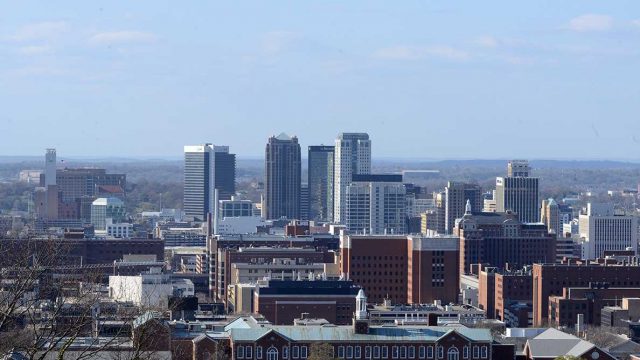By Erica Wright
The Birmingham Times
The City of Birmingham will receive $148.8 million as part of the $1.9 trillion American Rescue Plan signed into law last week by President Joe Biden.
Kelvin Datcher, Director of External Governmental Affairs for Birmingham, said the city has “opportunities . . . that are quite extraordinary.”
“First and foremost [the Rescue Plan] is to mount a robust, national vaccination program with a goal to contain COVID-19 and to safely re-open schools,” said Datcher, “so there will be dollars allocated to not just purchasing vaccines but the actual distribution.”
The aid is “one of the broadest features of government funding in quite a long time intended to mitigate the year-long impact of COVID-19, not just in health care but in economics, business, families and infrastructure, really across the board,” Datcher said.
There are four elements to the American Rescue Plan, he said.
“The first is to respond to the public health emergency with respect to COVID-19 or its negative economic impacts, including assistance to households, small businesses and nonprofits or aid to impacted industries such as tourism, travel and hospitality.
“The second would be to provide premium pay to eligible workers… third is guidance on how to replace lost revenue and the last is to make necessary investments in water, sewer or broadband infrastructure,” he said.
Funds cannot be spent to replace net tax revenue caused by a change in law or for pensions.
Datcher stressed that city officials are currently reviewing U.S. Treasury guidelines to see where the money can be allocated and subsequently a spending plan will be crafted to reflect the shared goals and priorities of the mayor and city council.
“The guidance is vital because it will tell us how these dollars can be used, not just the restrictions but the eligible areas,” he said.
The American Rescue Plan also extends unemployment insurance, increases SNAP (Supplemental Nutrition Assistance Program) and child tax benefits and contains $1,400 for eligible Americans.
Last year, there was a projected $63 million shortfall in the city’s FY 2020-2021 budget due to the COVID-19 pandemic which led to furloughs and other cost-saving measures that included the elimination of several paid holidays and an impact to the employee benefits.
“Those will be among the mayor’s top priorities in addressing these resources,” Datcher said.
According to funding, the city will receive the first half of the funding, $74 million, within 60 days since the bill was passed and another $74 million by 2022. All funds must be spent by 2024.
The money is part of the $350 billion provided to state and local governments to help boost budgets hard hit by the COVID-19 pandemic. The state of Alabama will receive $4 billion in funding and Jefferson County will receive $127 million.
County officials are discussing how the money can be allocated and in which areas, said Helen Hays, the county’s Public Information Officer.
With Birmingham receiving one of the largest allocation of funds in the state Mobile is allocated $60 million; Montgomery, $42 million and Huntsville, $35 million.




